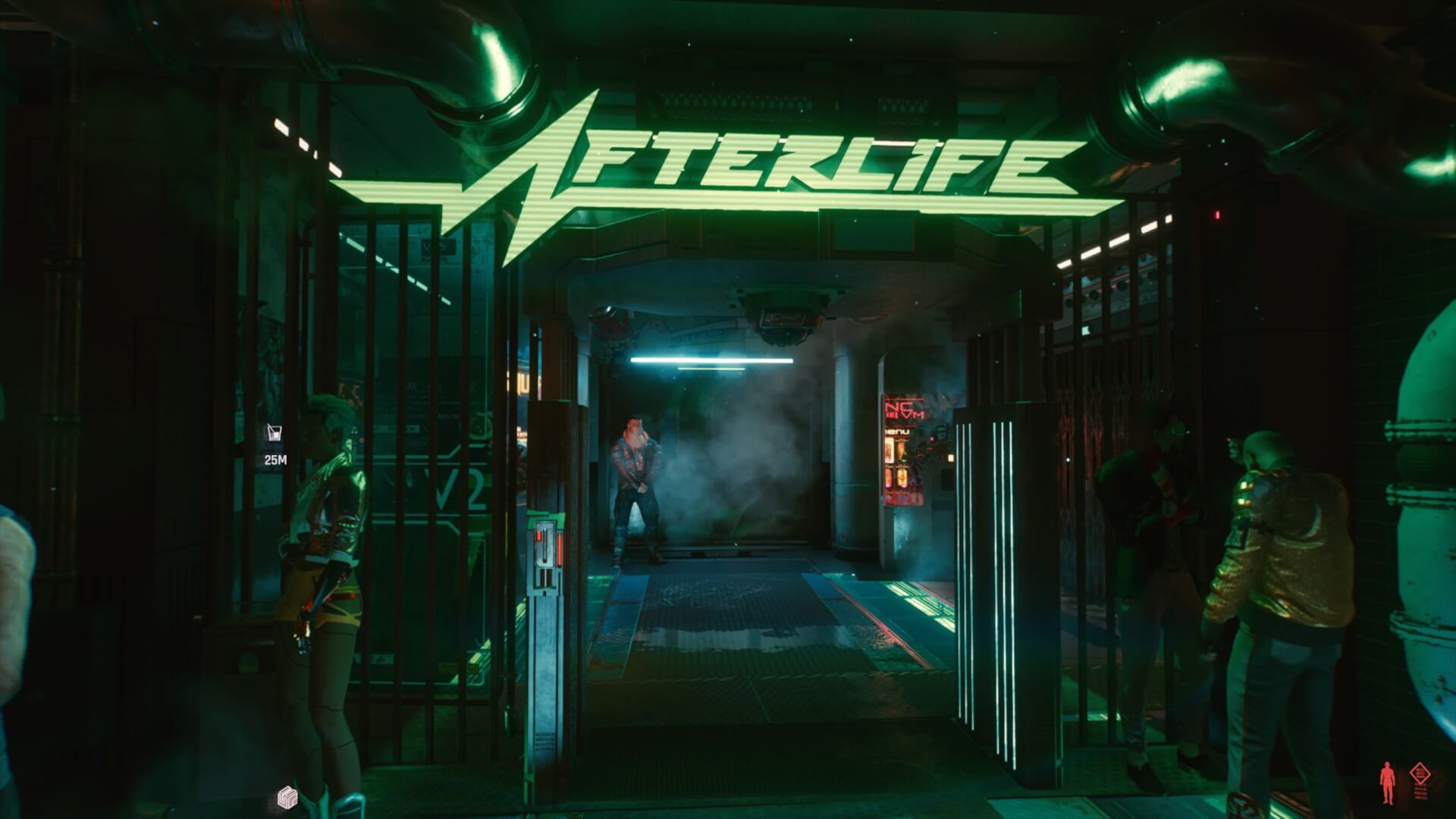[adrotate group = “15”]
By almost all metrics, Cyberpunk 2077 was supposed to be “good.” Instead, it was a glitchy mess, with some highlights here and there…and not enough of them to save it. Who is to blame? What can be done about it – can and will Cyberpunk 2077 be fixed?
CD Projekt Red: The promise and the apology
A few days ago, co-founder of CD Projekt Marcin Iwiński released a video titled “Cyberpunk 2077 – Our Commitment to Quality.” In the five minute video, Iwiński took responsibility for the less-than-perfect experience many gamers are facing across platforms but particularly on PlayStation 4 and Xbox One consoles. He also laid out a longer-term schedule with multiple updates aimed at improving the game as well as a free DLC set for around the end of 2021.
Good job, CD Projekt for owning up to the faulty game and promising to make it right on the players! I really hope all things will play out as promised and the game turns out to be the incredible experience it was dreamt up to be.
And to be fair to CD Projekt Red, they have done this before. Post-release updates for the company’s other major title, Witcher 3, have transformed the game into a modern-day masterpiece. Across the industry, other companies have also successfully revitalized their games. No Man’s Sky, Final Fantasy XIV, and Destiny 2 are other games that come to mind when speaking of significant and game-redefining post-launch content.
So, I should feel happy. I should feel excited for a game to eventually meet its enormous potential.
Instead, I feel exhausted.
Exhausted by lofty promises that are not met. Exhausted from having to wait for years for a game to be finished with post-release updates and DLC. Exhausted by the fact that, even after all this time and all the updates, it may not even be worth the wait or the price.
How did Cyberpunk 2077 go from “good” to a “glitchy mess”
Indeed, when I purchase a video game, I hope that it’s a “good” video game. “Good” certainly is subjective, and even some of the publicly agreed, best video games out there are disliked by others.
“Good” can also be a question of value, of whether or not the gaming experience matches the price paid.
By almost all metrics, Cyberpunk 2077 was supposed to be “good.”
Scratch that. It was supposed to be “great,” “genre-defining,” “console-selling,” “next-generation gaming.”

CD Projekt Red’s E3 2019 Presentation was a cinematic trailer, but it showed a world, characters, and story almost unlike any others. They drove up the hype even further when Keanu Reeves stepped on stage, and even made a lasting cultural moment with the spawning of the “You’re Beautiful” meme.
Subsequent gameplay trailers released by the company heightened the anticipation, showing that the game was not only “talk” but substance as well.
But Cyberpunk 2077 was not “good,” much less “next-generation gaming.” It was a glitchy mess, clearly a game with a few too many shortcuts taken to get it out by release, and a main character with a cardboard personality.
The last point was particularly disappointing, given the depth (some places more limited than others) of the character customization screen and the deep personality we thought V had.
Sure, there were highlights – some action sequences were great and hint at a potentially complex system ahead – but there were not enough bright points to call the current iteration of the game “good.”
If you’re still doubting whether or not Cyberpunk 2077 is “good,” it crashes systems. Consistently.
Say it with me: if a game causes system crashes, it is probably not a “good” game.

There were certainly glaring signs of an unpolished game around the corner. Reports came out along the way that developers were required to work six days a week in order to get the game out even as the company promised not to force its developers into crunch mode.
Gameplay showcases did look incredible, but base console footage was almost nowhere to be seen.
Some may also point to a long wait time between its initial announcement in 2012 and release, with subsequent delays in the middle, as perhaps a sign of an unfinished game ahead.
However, it should be noted that other highly anticipated games in 2020, like The Last of Us Part II and Final Fantasy VII REMAKE, faced similar circumstances and launched playable (whether or not you liked the story for either). It is more damning that developers were reportedly aghast at a 2020 release, believing it was a joke as the game essentially restarted its development cycle in 2016 (per Bloomberg).
Cyberpunk 2077: Who should take responsibility?

It’s easy to blame this all on upper management, deciding when to release the game, what aspects to market (and not to market), and what the game will ultimately be, over the advice of those directly working on it.
To be clear, upper management does bear a lot of responsibility. But the whole Cyberpunk 2077 debacle is a moment to reflect on other aspects, like DLC/pre-order culture and video game journalism, which created this particularly disastrous occasion.
When it comes to the former, it’s hard to remember when exactly post-release updates started. But they certainly have become the norm. Not all post-release updates and DLC are equal. Some, like in the case of Hollow Knight, take an already incredible game and make it even better. Others, like in Pokémon Sword and Shield, charge a premium for content that should have been there in the first place. Others, like those found in NBA2K20 and Overwatch, monetize the game, sometimes to an extreme.
These various forms of DLC, both free and paid, have led to many games releasing incomplete, with subsequent updates filling in the missing spots.
Live service games are an example of games that could only exist within this environment of constant updates to “unfinished games.” Unfortunately, this has led to some games, like Anthem and perhaps Fallout 76, which were so buggy at launch but gamers believed the promise that they would eventually get better through updates.
These companies understand the value of live services behind a paywall. In the latter example, players have to pay $12.99 a month (or $99 per year) for a Fallout 1st Membership, a membership that unlocks essentially pay-to-win content. It should be noted that this, along with other updates, went back on Bethesda’s pre-release promise of only cosmetic DLC. To note, these games remain buggy to this day.
Pre-order culture only fuels the problems of DLC and live services as players do not have a chance to see real gameplay before buying. You know, not gameplay released by companies or by media (who may sometimes be obligated to only show certain segments of the game).
While one could argue gamers should just not pre-order the game, pre-order bonuses in the form of steel cases, DLC, and more only makes it worse. Retailers often have their own set of pre-order bonuses, capitalizing on our fear of missing out various exclusives and perks.
The machine remains well-oiled, so to speak.
As for video game journalism, it’s clear that we helped drive the hype. Constant coverage, even neutral, brings attention to the game. Of course, we couldn’t predict how Cyberpunk 2077 turned out, but we should have been more skeptical.
We should apologize for how we focused on the entrancing parts of the game without taking seriously some of the glaring red flags more investigative journalists brought to our attention.
In order to make sure consumers are better informed, we as journalists should make sure we are not swept along in the hype.
Cyberpunk 2077 future: Where to now?
Cyberpunk 2077 will likely be fixed; CD Projekt’s reputation depends on it.
More games will be hyped up by game publishers, media, and content creators alike. Pre-order bonuses will still drive sales. DLC will be more commonplace, with a future of all-digital looking more and more likely with the release of the PlayStation 5 Digital Edition and Xbox Series S. And games will be released far buggier and more incomplete than advertised.
While it may seem counterintuitive, Cyberpunk 2077 is a “complete” product by the standards of today’s contemporary gaming industry.
It’s an industry that is certainly bound by profits at least as much as it is bound by the creative endeavor of making a video game.
It’s the development team who is often overworked and not given enough say in the vision and release of a game.
It’s a DLC environment that makes it ok to release half-baked games at full price, only to be made even more expensive through DLC packs.
It’s an implicit (sometimes explicit) partnership between gaming companies and journalists, influencers, and content creators to drive up hype and page views.
It’s retailers who perhaps move too slowly to protect consumers or give them appropriate trials or refunds. And at the end of it all are the gamers, left with a game they thought would be better and little recourse to hope for better, during this moment and beyond.
But to end on perhaps a more hopeful note, it seems that change is possible through collective action. The loud outcry because of Cyberpunk 2077 is an example. The company has had to issue refunds, developers’ voices are starting to be heard, retailers had to extend (or even adjust) traditional policies, and more. It’s fair to say this is just a market reaction to a game poorly released. Because it is.
However, with more people, more knowledge, and more pre-emptive action, developers and gamers can start to determine what kind of gaming landscape they want. Actors in deciding their relationship to gaming. All aspects of gaming.
This may take time and a lot of people. But there is hope. After all, if there is a lesson to take away from the Cyberpunk 2077 fiasco, it’s that there is a tipping point. As the landscape of gaming has slowly but surely becomes more non-consumer friendly, gamers will hopefully begin to speak out about what they want and force change.
Follow TechTheLead on Google News to get the news first.

























